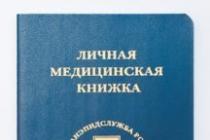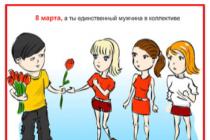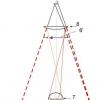
Personal manager
Broker's seal
Transport company Patix Trans Group organizes customs clearance of goods in the CEDs of Moscow and the Moscow region, Vladivostok and St. Petersburg. With the mediation of our specialists, the procedure will last no more than 24 hours.
- Specialist. price - registration and submission of DT from 12,000 rubles.
- Registration with the stamp of a customs representative from 17,000 rubles.

Customs clearance is mandatory for the official movement of goods and cargo through customs border Russian Federation. In our realities, this procedure is one of the most difficult and requires a lot of experience from the organization that implements it. Customs clearance of goods is a set of activities that participants perform foreign economic activity during the movement of goods and Vehicle across the customs border. According to the laws of the Russian Federation, all goods and goods are subject to customs clearance, regardless of the mode of transport by which transportation is carried out.
Service list:
- Classification of goods in accordance with the TN VED code;
- Collection, filling and examination of documentation for declaration;
- Customs clearance of goods at airports, seaports and on land borders with other countries;
- Customs clearance of goods for SEAL OF THE CUSTOMS REPRESENTATIVE;
- Legal assistance at customs;
- Free advice on legal issues;
- Calculation of the cost of a complex of services for customs clearance.
Company PTG provides services for import, export, transit and temporary importation of goods. The price of customs clearance depends on the type and quantity of cargo.
Glossary
In the case of customs clearance of goods, many unfamiliar words and legal terms can be encountered. Here are the main ones:
- customs representative (broker) – entity, which carries out the execution of documents, and represents the interests of the client in the competent authorities. The representative conducts his activities within the framework of a brokerage agreement;
- customs clearance of goods and goods- a slang expression, which nevertheless is often found among professionals. Means customs clearance with the obligatory payment of the stipulated payments upon importation of goods;
- declarant- a specialist (individual or legal entity) who is authorized by the customs authorities to declare goods and cargo when they are moved across the state border;
- customs clearance is a slang term for getting all required permits to export goods abroad. It includes obtaining an opinion (permit) from the FSTEC in cases where it is provided for by law, for example, when exporting dual-use equipment, oil, gas, round timber, etc.
Order of procedure
Customs clearance of goods is carried out in the following sequence:
The procedure for customs clearance of goods is strictly regulated legal acts. It does not make sense to paint the entire procedure in detail, we will only tell about its key stages:
- Registration goods and release of the declaration. You must provide a complete list of required documents and information for filing a declaration. If false information is provided, administrative liability arises in the form of a fine, and in some cases the goods may be confiscated;
- Compliance with the rules non-tariff regulation, as well as verification of the TN VED code. For the implementation of measures of customs-tariff and non-tariff regulation, a special classification of goods is used;
- Validation declared customs value. Often, cargo owners enter incorrect data on the value of the goods in the declaration. Customs authorities have the right to require documents that confirm the value of the goods. In addition, if they have doubts, it is possible to send a request to the competent regulatory authorities of the country from which the goods were exported;
- Payments. At the time of the actual border crossing, the owner of the goods is obliged to pay import taxes. customs duties and taxes;
- Currency control. It is necessary to transfer foreign exchange earnings to the accounts of banks that have signed transaction passports under the relevant foreign trade contracts within the established time limits.
- Checking payments by declaration. Benefits and their justification are determined, the presence of arrears in payments is checked, and, if necessary, penalties for delay are set.
- Inspection and release. The final stage, at which a personal inspection of the cargo is carried out and its results are recorded. If everything is normal, then permission is given to release the goods, otherwise, the reasons for the ban are indicated.
Company Patix Trans Group guarantees successful registration in compliance with the legislation of the customer.
Documentation
When customs clearance of goods, customs may require all documents that relate to the delivery. Depending on the ongoing import-export operations and the characteristics of the cargo being transported, the list required documents. Typically, the following information is required:
- certificate of registration in tax authority;
- statistics codes;
- product certificates;
- documents on registration of a legal entity engaged in export/import;
- photocopy of the manager's passport;
- insurance contracts;
- waybills;
- contract, invoices or invoices from the supplier.
It is necessary to present the original documents or copies certified by the head.
Places and points of customs clearance
The performance of customs operations during customs declaration in electronic form of goods located in the region of activity of the customs authority, different from the place of their declaration, is carried out at customs posts (electronic declaration centers) in cooperation with customs posts, in the region of activity of which goods are placed and temporary storage warehouses are located .
Places of customs control are areas where a special check of goods is carried out. As a rule, these places are located near the intersection Russian border with the paths of any means of transport.
PTG offers customs clearance services at the CED of Moscow and the Moscow Region, the CED of Vladivostok and St. Petersburg, the CED of Sheremetyevo, the Tver and Kaluga Center for Electronic Declaration. Processing time is less than 24 hours.
We work at Domodedovo and Sheremetyevo airports, at auto posts in the Moscow region, in the port of St. Petersburg and Vladivostok.
Service cost
The cost of services depends on the number of declarations per month, the number of sheets in the declaration and the specifics of declaring your goods. Flexible payment terms.
Specify the cost of services
Price list for basic services from Patix Trans Group:
| Customs clearance services in the "EXPORT" mode (legal entities) | 11000 rub. for 1 diesel fuel (1-3 TN VED codes) |
| Customs clearance services in the “IMPORT” mode(legal entities) | 15500 rub. for 1 diesel fuel (1-3 TN VED codes) |
| REGISTRATION of adjustment of the customs value (drawing up a CCC declaration) | 3000 rubles for 1 diesel fuel (1-3 TN VED codes) |
| Surcharge for each subsequent code in DT | 1000 rubles for 1 diesel fuel (over 3 TN VED codes) |
| Assistance in preliminary examination / inspection of cargo up to 100 kg | 3000 rub. for 1 diesel fuel (1-3 TN VED codes) |
| Assistance in pre-screening/inspection of cargo over 100kg | 6000 rub. for 1 diesel fuel (1-3 TN VED codes) |
| Document translation (English, German, French, Italian, Spanish) | 650 rub. sheet |
| Translation of documents (Chinese, Japanese, Finnish, etc.) | 950 rub. sheet |
| Determination of the product code according to TNVED | FOR FREE |
| Work with contracts (analysis of customs value, contract terms, compliance with currency legislation, drafting contracts), with documents (analysis accompanying documents(correction of inconsistencies), the presence or absence of intellectual property for goods being cleared, etc. | FOR FREE |
| Formalization of documents | FOR FREE |
| Organization of registration of permits | FOR FREE |
| Organization of preparation of expert opinions | by agreement |
| Confirmation of customs value | FOR FREE |
| PRICES ARE INCLUDED WITH VAT 20%. | |
|
The cost of a complex of services of a temporary storage warehouse for the processing of goods arrived in one vehicle. Included in the price: o placement of a vehicle in a temporary storage warehouse, o drawing up a report document (DO-1), o transmission electronic version DO-1 to the customs authority, o unloading up to 10% of the goods from the vehicle, o printing photos of goods for customs inspection, o packaging of goods after customs clearance, | 10,000 (nine thousand five hundred) rubles, including 20% VAT. |
| Forwarding in the ports of Vladivostok, St. Petersburg, Novorossiysk | |
| Forwarding in air ports: Domodedovo, Sheremetyevo, Vnukovo | 3000 rub. |
*the price is indicated for new customers when registering goods up to 5 codes, invoice prices are higher than the risk, all documents are correct, formalization of documents, DT stuffing, submission are included).
Scheme of work

PTG has many years of experience in the field of customs clearance of goods. We know that any transportation of cargo is a difficult and often nervous process, so we have developed our own algorithm for cooperation with clients. It includes several stages:
- Conclusion of an agreement;
- Collection and verification of a package of documents;
- Drawing up recommendations for the correct and prompt passage of customs clearance of goods;
- Declaration. Selection of codes for TN VED;
- Resolution of non-tariff regulation issues;
- Preparation of a declaration;
- Release of goods for free circulation;
- Drawing up and sending to the client an act of work performed and an invoice for payment.
Our advantages
When ordering customs clearance services in our organization, you get the following privileges:
- Efficiency. Strict observance of terms of cargo delivery is one of the priorities of our activity. All procedures are carried out within 24 hours.
- Turnkey work. Customs clearance of goods includes a number of procedures - we take care of all this.
- Experienced Lawyers. Legislation in this area includes a large number of laws and regulations. Our legal service possesses all the necessary knowledge and practical experience in order to carry out qualified check customs documentation.
- Representation of interests customer at customs. In case of any problems, we provide full legal and administrative representation of our clients in order to protect their interests.
- Individual approach. Each customer is assigned a personal manager, who carries out round-the-clock control over customs clearance of goods.
- Free consultation. If you have any questions, you can get a free consultation at any time.
Customs clearance- this is the implementation of the necessary procedures that arise in order to pass goods and vehicles through customs control points. Such terms as "declaration of cargo", "customs clearance" and other narrower terms related to various customs regimes have become synonymous with this phrase.
Overcoming the customs border, absolutely every cargo or product must go through the procedure customs clearance. This applies both to export (i.e. export) and import (i.e. import) procedures, as well as to all modes of transport by which international cargo transportation is carried out (road, railway, air, maritime and multimodal transport).
"DMlogist" offers a service for customs clearance goods and cargo in any customs procedures throughout Russia! Thanks to our certificate of inclusion of our company in State Register customs representatives, as well as considerable experience in the provision of customs services and numerous reliable contacts with customs authorities, we fulfill customer orders with high quality and in the shortest possible time!
Are you interested in customs clearance? Our experts will be happy to help you!
Terms used in the professional environment
- "Customs clearance", "customs clearance" or "import clearance" - one of the options for declaring goods, means customs clearance of cargo when importing goods from abroad
- "Customs clearance", "customs clearance" or "export clearance" - obtaining a permit for the export of goods abroad, includes several activities for the provision and issuance of a declaration (EX-1) for subsequent transportation of goods to the customer's warehouse
- "Customs broker" or "customs representative" is a firm (i.e. a legal entity) that provides services for customs clearance cargo and goods to customers at the customs border, because it has a special certificate. In our case, we are such an example, the company "DMlogist"
- "Customs declarant" is a person who draws up a customs declaration for goods belonging to the customer. Based on the regulatory framework of the Customs Union of the EAEU, the goods require documentation in the Federal Customs Service of the Russian Federation (FTS RF)
Customs clearance procedure
The set of customs clearance procedures is characterized by a clear step-by-step, strict regulation and requires the participants in foreign economic activity the necessary knowledge in this area of logistics science. Customs clearance is subject to the system of rules established in the Customs Code of the Customs Union (CC CU or CC EAEU).
Customs declaration of goods and goods can be carried out according to one of several existing customs procedures. What kind of procedure this will be is decided by the customs declarant or directly by the owner of the goods. Their task is to submit the necessary documentation to the customs authority for further customs clearance and registration at customs.
Customs clearance of cargo includes 5 stages of documentary control:
- Registration of goods in customs authorities
- Document control
- Currency control
- Payments
- Passing the technical control line (LTK)
Then, when all the above points are behind, the release of goods is carried out.
To pass customs control and hassle-free customs clearance of goods and vehicles, you should prepare a package with all the required documentation.
Services for customs clearance of goods and goods
"DMlogist", being a certified customs broker, provides any kind of customs services, including the declaration of goods and goods.
The main advantages of our company in customs clearance include the following points:
- We work with any kind of customs regimes (export / import, temporary import / export, re-import / re-export, reloading / transshipment, customs transit and many others)
- Declaration takes place at various customs points both in Russia and other countries of the world, in specially designated places associated with modes of transport (at road posts, temporary storage warehouses, railway stations, air and sea ports)
- Provision of customs brokerage services in various cities of Russia, if necessary
- We arrange any types and categories of cargo and goods
- We help in the preparation of the necessary documentation, as well as select the HS codes of the EAEU
- We carry out registration of any types of customs declarations (for goods, for a vehicle, transit, passenger)
- We cooperate with all participants of foreign economic activity
- We provide free consulting and costing
- We work every day and around the clock, for the minimum time and with love for the profession!
We guarantee our customers the safe passage of customs formalities! Using the database of necessary information accumulated by our employees and thanks to their unique competencies, we will be happy to assist in the development of your business and more! "DMlogist" every day carries out the clearance of goods and goods in different cities throughout Russia, making your business more efficient!
How much does customs clearance cost?
Costs for customs clearance of goods vary according to which of the participants in foreign economic activity the customer is, and the availability of any additional services he needs
Estimated cost:
- Customs clearance of goods for individuals will be from 3000 ₽ to 8000 ₽
- Customs clearance of goods for legal entities and individual entrepreneurs will be from 3000 ₽ to 22500 ₽
Commercial cargo transported across the border of the EAEU is subject to mandatory customs clearance in accordance with the customs legislation of the Russian Federation and the Eurasian Customs Union of the EAEU. A set of measures for customs clearance of international cargo transportation is called customs declaration, in everyday use, customs clearance (TO), which has its own characteristics, in connection with which it is customary to single out the following main areas in a professional environment:
- Import is the importation of foreign goods, requiring the preparation of documentation before the importation of goods, its customs clearance when it crosses the border of the EAEU and the payment of the necessary payments for its legal import and subsequent use on the territory of the EAEU.
- Export - shipment which involves the implementation of a number of actions for the customs clearance of Russian goods for the purpose of their subsequent export abroad:
- customs clearance of goods for export
- customs transit (Kaliningrad, Armenia)
The owner of the cargo (declarant) must provide correct and reliable data in full about the transported goods, violation this requirement may result in the delay of the cargo at customs, fines, penalties and the imposition of administrative liability on its owner. The declarant has the right to conduct maintenance independently, if available technical support and declaration knowledge, or through an intermediary - a representative (), acting on his behalf and on his behalf.
The group of companies GTK-S consists of two companies.
JSC Firma GTK-Service is a licensed customs consulting company that provides services of a customs representative in clearing the client's goods in the customs authorities on the basis of a written agreement concluded with him.
LLC "Company" GTK-S "is a specialized export customs representative, whose activities are aimed at the optimal solution of issues related to the organization of customs clearance of export deliveries (cargoes).
A feature of our company engaged in customs clearance is the location of branches / structural divisions in the main logistics areas of the Russian Federation:
Price customs clearance
What do the rates for customs clearance depend on:
- from the region in which it is produced;
- on the type of goods;
- assortment of goods in the batch;
- its customs value;
- included expenses related to customs clearance (for example, temporary storage warehouse services);
- from the established procedure and a set of measures for placing goods under this procedure;
- from the frequency of deliveries.
JSC “Firma GTK-Service” does not inflate the prices for services, since the following types of activities are already standardly included in their complex:
- Registration of a participant in foreign economic activity.
- Verification of the correctness of the provision of a full package of shipping documents.
- Preliminary consultation on the full list of documentation and the list of descriptions required for maintenance.
- Determination of the classification code of the goods in accordance with the TN VED of the EAEU.
- Preliminary calculation of customs payments.
- Formalization of documents and customs clearance under the seal of the representative/declarant as agreed by the parties.
- Representing the interests of the declarant at customs in the manner prescribed by law.
- Notification of the declarant about the status of clearance of his goods by e-mail or SMS.
For a fee, we offer additional services:
- We organize the transfer of customs payments/taxes.
- We send the necessary correspondence via courier service.
- We prepare and register a security certificate for the payment of customs duties/taxes required for the transit transportation of goods.
- We provide assistance in product certification.
Types of work (services) for which the cost is indicated "As agreed", as well as the specific cost of all types of work (services) is determined in agreement with the customs representative and depends on the customs clearance procedure, type of delivery, place of clearance, category of goods and frequency of deliveries. The cost of work is fixed Additional agreement to the Customs Representative Agreement.
| Type of work (services) | Cost, with VAT | ||||||||||||||||||||||||||||||||||||||||||||||
|
|||||||||||||||||||||||||||||||||||||||||||||||
| 2. Works (services) on customs transit procedures (including registration of a guarantee certificate) | From 300 | ||||||||||||||||||||||||||||||||||||||||||||||
|
|||||||||||||||||||||||||||||||||||||||||||||||
|
|||||||||||||||||||||||||||||||||||||||||||||||
| 6. Other types of work (services): | By agreement | ||||||||||||||||||||||||||||||||||||||||||||||
Mutually beneficial partnership the basis of long-term cooperation
GTK-Service is a company focused on stable and long-term partnerships!
- We promptly solve the issues of passing all customs procedures, regardless of the type of cargo, its volume and the country of departure.
- We prevent unnecessary financial expenses of our clients.
- We accompany the clearance at all stages of international cargo transportation, starting with the purchase and ending with prompt delivery to the warehouse.
- We develop our employees, because we understand that their professionalism is a guarantee of the most beneficial result for the client. Our company employs more than 40 specialists with a service station certificate confirmed every 2 years, 50% of whom have more than 15 years of work experience in their main specialty.
Customs clearance is a kind of customs procedures, i.e. a set of provisions fixing the procedure for performing customs operations and determining the status of goods and vehicles for customs purposes. Main purpose of customs clearance consists in the need to determine the customs regime or other customs procedure for goods and vehicles or terminate their operation .
In the course of customs clearance in relation to goods and vehicles, customs authorities and persons perform certain actions, which are called customs operations (clause 20, part 1, article 11 of the Labor Code of the Russian Federation). Customs clearance as an activity represents a set of customs operations aimed at determining the status of goods for customs purposes. Participants of customs clearance traditionally the declarant (Article 126 of the Labor Code of the Russian Federation) and Customs. They are among the mandatory subjects of customs clearance.
Declarant- this is a person who declares goods or on behalf of whom goods are declared (subparagraph 15, paragraph 1, article 11 of the Labor Code of the Russian Federation). According to paragraph 1 of Art. 124 of the Labor Code of the Russian Federation on behalf of the declarant may act Customs Broker .
According to part 2 of Art. 126 of the Labor Code of the Russian Federation, the obligation to perform customs operations for the release of goods is borne by:
Russian persons who have entered into a foreign economic transaction or on whose behalf or on behalf of whom this transaction has been concluded;
If the movement of goods across the customs border is carried out without the conclusion of a foreign economic transaction by a Russian person;
Persons having the right to own and (or) the right to use goods in the customs territory of the Russian Federation;
Other persons acting in a capacity sufficient in accordance with the civil legislation of the Russian Federation and (or) with the Labor Code of the Russian Federation to perform legally significant actions on their own behalf with goods under customs control(for example, freight forwarders acting on the basis of a contract (part 4 of article 93 of the Labor Code of the Russian Federation).
Only a Russian person can be a declarant, except for cases when goods are moved across the customs border (Article 126 of the Labor Code of the Russian Federation):
Individuals for personal, family, household and other needs not related to entrepreneurial activities;
Foreign persons enjoying customs privileges in accordance with Chapter 25 of the Labor Code of the Russian Federation;
Foreign organizations that have representative offices registered (accredited) on the territory of the Russian Federation in accordance with the established procedure, when declaring the customs regimes of temporary importation, re-export, transit, as well as the customs regime of release for domestic consumption of goods imported for own needs such representations;
Foreign carriers when declaring the customs regime of transit;
Other cases when foreign person has the right to dispose of goods in the customs territory of the Russian Federation not within the framework of a foreign economic transaction, one of the parties to which is a Russian person.
The customs authority and the declarant commit with goods and vehicles customs operations : for example, a customs officer registers the arrival of a vehicle, the declarant participates in the reloading of goods, etc.
In order to carry out customs operations in the course of customs clearance, special units have been created in the customs authorities.
In customs operations preceding the declaration of goods or carried out simultaneously with it, may take part carriers (including customs), freight forwarders, and owners of temporary storage warehouses .
In order to speed up customs clearance and carry out control measures, customs authorities may be assisted persons who are not participants in customs legal relations. Thus, the administration of the checkpoint across the State Border of the Russian Federation (head of the airport, airfield, sea, river port, railway station, station) notifies the customs authorities in advance of the place and time of arrival of vehicles at the checkpoint across the State Border of Russia (Article 71 of the Labor Code of the Russian Federation) .
Principles and rules of customs clearance are enshrined in law or follow from the logic of building the norms of the Customs Code and the law enforcement activities of the customs authorities.
Industry-wide principle of legality in customs clearance is manifested in the fact that the basic rights and obligations of the customs authority and the declarant, the rules for the operation of the customs procedure in question are enshrined in the above Code.
The principle of promptness manifests itself in the fact that: firstly, for each stage of customs clearance, the Customs Code of the Russian Federation has established reasonably short deadlines. For example, the deadline for filing a declaration, the deadline for the release of goods. The obligation to comply with procedural deadlines rests not only with the declarant, but also with the customs authorities; secondly, in most cases, customs clearance is carried out according to the “one-stop shop” rule: verification of documents and information, inspection of goods for the purpose of their release is carried out at the location of the customs authority that accepted the customs declaration.
The procedure for the implementation of customs clearance is ultimately derived from a number of indicators:
The legal status of the declarant (individuals, individual entrepreneurs and legal entities);
Type of goods and vehicles moved across the customs border;
Method of movement of goods;
Purpose of goods.
This is how it manifests principle of differentiated approach in customs clearance.
An important beginning of customs clearance is interaction principle customs authority and declarant. It manifests itself in the fact that these entities make joint, statutory efforts to assign the customs regime to the goods being transported.
As a general rule, customs clearance is carried out in Russian. This rule has exceptions. Thus, when moving goods by individuals for personal purposes, it is allowed to carry out customs clearance in a foreign language, provided that it is owned by a customs officer. If documents are submitted in a foreign language, their official translation is required.
The procedure for the production of customs clearance. The production of customs clearance of goods and vehicles as a law enforcement activity is assigned to the customs authorities.
Place of customs clearance. Traditionally, customs clearance of goods is carried out at the locations of customs authorities during the work of these authorities (Article 62 of the Labor Code of the Russian Federation). At a reasoned request of the declarant or other interested person with the written permission of the head of the relevant customs authority or a person authorized by him, certain customs operations in the course of customs clearance may be carried out outside the locations and outside the working hours of customs authorities.
Action of customs clearance in time. When goods are imported, customs clearance begins at the time of submission to the customs authority of a preliminary customs declaration or documents for goods and vehicles. When moving goods by individuals for personal needs, customs clearance begins at the time of an oral application or other actions indicating the intention of the person to carry out customs clearance.
In case of export of goods, the commencement of customs clearance is associated with the moment of submission of a customs declaration, or an oral statement or other actions indicating the intention of a person to carry out customs clearance when moving goods by individuals in a simplified manner.
Customs clearance ends performance of customs operations necessary for the purpose of:
Application of customs procedures to goods;
Placement of goods under the customs regime or to terminate the operation of this regime, if such customs regime is valid for a certain period;
Calculation and collection of customs payments.
Customs clearance can be completed only after the implementation of sanitary-quarantine, quarantine phytosanitary, veterinary and other types of state control of the import of goods into the customs territory of our country or their export, if the goods are subject to such control in accordance with federal laws and other legal acts of Russia (Article 66 of the Labor Code of the Russian Federation).
In some cases, in order to carry out certain customs operations, a person interested in their implementation is obliged to apply to the customs authority to obtain permission to perform them (Article 61 of the Labor Code of the Russian Federation). When performing customs clearance, persons interested in the movement of goods are required to submit to the customs authorities documents and information required for customs clearance. The customs authorities have the right to require the submission of only those documents and information that are necessary to ensure compliance with the customs legislation of Russia and the submission of which is provided for in accordance with the Customs Code.
Lists of documents and information, requirements for information required for customs clearance in relation to specific customs procedures and customs regimes are established by the Federal Customs Service of Russia. Since the procedure for customs clearance depends on various factors, The Customs Code provides for a priority procedure for customs clearance for certain categories of goods, as well as the possibility of using special simplified procedures by bona fide participants in foreign trade activities.
So, priority and simplified order customs clearance applies to goods transported across the customs border of the country for the purpose of providing humanitarian and technical assistance, perishable goods, live animals, radioactive materials, international postal items and express cargo, messages and other materials for funds mass media and other similar products.
Conscientious participants in foreign economic activity that meet the requirements of Article 68 of the Labor Code of the Russian Federation are entitled to use special simplified procedures: carry out periodic declaration of goods (Article 136 of the Labor Code of the Russian Federation), rely on the release of goods upon submission of information necessary for the identification of goods (Article 150 of the Labor Code of the Russian Federation), or conduct customs clearance at the facilities of such persons, store goods in their warehouses, apply other simplified procedures. An application for special simplified procedures is considered by the customs authority at the location of the legal entity.
The applicant must submit an obligation in writing to agree to maintain a system for recording his commercial documentation in a way that allows the customs authorities to compare the information contained in it and the information provided to the customs authorities in the course of customs clearance of goods, as well as to agree to provide access officials customs authorities to the specified accounting system. The use of special simplified procedures does not exempt interested party from compliance with the requirements established in the Customs Code regarding the payment of customs duties, compliance with regime rules and non-tariff regulation measures.
Stages of customs clearance. The set of customs operations and procedures, organized sequentially, form the stages of customs clearance. In science, it is customary to distinguish between preliminary customs operations and procedures preceding the main customs clearance, basic customs clearance, customs operations after customs clearance.
Preliminary customs operations and procedures preceding the main customs clearance include:
Carried out before the movement of goods and vehicles across the customs border (for example, obtaining permission to use special simplified procedures);
Prior to filing a customs declaration (for example, the arrival of goods in the customs territory of Russia, obtaining a certificate of approval of a vehicle (part 4 of article 84 of the Labor Code of the Russian Federation), placing goods under the internal customs transit procedure (chapter 10 of the Labor Code of the Russian Federation), for temporary storage ( Chapter 12 of the Labor Code of the Russian Federation).
Separate preliminary operations for the importation of goods can be carried out both before their arrival in the customs territory of Russia, and after, but before the completion of internal customs transit and the start of the main customs clearance. For example, a person interested in the customs clearance of goods submits to the customs authority an application for a preliminary decision on the classification of goods in accordance with the FEACN1, on the country of origin of goods (Articles 41-44 of the Labor Code of the Russian Federation); submits a preliminary declaration (Article 130 of the Labor Code of the Russian Federation).
preliminary declaration- this is a customs declaration that can be submitted for foreign goods before their arrival in the customs territory of Russia or before the completion of internal customs transit. If the goods are not presented to the customs authority that accepted the customs declaration within 15 days from the date of its acceptance, the customs declaration is considered not submitted. Preliminary declaration provides for the possibility to submit copies of documents confirming the declared information, which are subject to verification upon arrival of the goods. In preparation for the main customs clearance, the declarant may make payments in advance or secure their payment with a cash deposit.
Basic customs clearance form such mandatory stages as declaration of goods and vehicles and their release in accordance with the stated customs regime or other customs procedure.
By completion of the main customs clearance different operations can be carried out:
Customs operations aimed at ensuring compliance with the rules of the customs regime or the completion of its operation (for example, internal customs transit for the purpose of delivering foreign goods from the place of production of the main customs clearance to the customs warehouse or exporting goods from the territory customs warehouse; departure of the exported goods from the customs territory of Russia (Chapter 13 of the Labor Code of the Russian Federation);
Operations related to compliance with established restrictions in the case of conditional release of goods (for example, presentation of a license for goods released into free circulation conditionally).
Customs clearance for goods exported from the customs territory of Russia is carried out according to the scheme: “submission of a customs declaration” → “release of goods in accordance with the declared regime” → “departure of goods from the customs territory of Russia”.
CCD - an official document drawn up in the prescribed form and used to carry out customs formalities when moving goods across the customs border of the Russian Federation and when changing the customs regime under which the goods were placed. The CCD form, which was introduced into the practice of customs clearance of goods in Russia on April 1, 1989, coincides with the SAD form - the Single Administrative Document used on the territory of the countries European Union. The forms of GTE forms have changed several times. Currently, the forms of GTE forms approved by the Order of the Federal Customs Service of Russia dated August 3, 2006 N 724 are used.
Filling in the columns and sections of the CCD is carried out in accordance with the Instruction determining the procedure for filling out the cargo customs declaration and the transit declaration, approved by Order of the Federal Customs Service of Russia dated September 4, 2007 N 1057.
Information in the customs declaration is entered by the declarant (if the declarant - individual) or authorized person declarant (if the declarant is a legal entity) or by a customs clearance specialist of a customs broker (if the declarant uses the services of a customs broker). To fill in the relevant columns of the CCD, for which the use of classifiers is required, these persons must use the annexes to the Order of the Federal Customs Service of Russia dated August 21, 2007 N 1003 "On classifiers and lists of regulatory and reference information used for customs purposes", as well as All-Russian classifier countries of the world, approved by the Decree of the State Standard of Russia of December 14, 2001 N 529-st, and the All-Russian Classifier of Currencies, which entered into force with the adoption of the Decree of the State Standard of Russia of December 25, 2000 N 405-st.
For each batch of goods, one customs declaration is filled in, in the case when the same customs regime is established for such goods. In the case when goods are subject to placement under different customs regimes, it is necessary to fill in such a number of customs declarations that will correspond to the number of specified regimes.
In the process of declaring goods using only the main sheet (TD-1 or TD-3), the customs declaration may contain information about goods of the same trade name, type and brand, classified by one ten-digit code in accordance with the Commodity Nomenclature for Foreign Economic Activity of the Russian Federation (hereinafter - TN VED of Russia), the place of origin of which is one country or if the country of origin of such goods is unknown, are subject to the same customs duties and declared in one customs regime.
Both types of additional sheets (TD-2 or TD-4) make it possible to additionally declare goods of three more nomenclature names, types and brands, each of which is classified by one ten-digit code in accordance with the TN VED of Russia, originate from one country or the country of origin of these goods is unknown are subject to the same customs duties. The number of additional sheets to one GTD is not limited. The supplementary sheets are integral part GTD. If, when using sheets TD-2 and TD-4, there are blank columns intended for declaring one item of goods, then these columns must be crossed out.
In the cargo customs declaration, several information blocks, or sections, of the customs declaration can be distinguished:
A) general characteristics deliveries (columns 1, 3 - 6): these columns declare information about the customs regime, the number of goods and packages;
b) persons involved in customs clearance (columns 2, 8, 9, 14, 54): information about the sender, recipient of goods, the person responsible for the financial settlement (contract holder), as well as the declarant and the person who filled out the customs declaration is declared here;
c) geographical block (columns 11, 15 - 17a, 34): this block reflects the codes of the trading country, the country of departure and the country of origin of goods when importing goods into Russia, the country of destination - when exporting goods from Russia;
d) transport block (columns 18, 19, 21, 25, 26): information is indicated on the vehicles on which the goods were transported, on the use of container transportation;
e) financial block (columns 12, 20, 22 - 24, 28, 47, 48): information on the total customs value of goods declared in one CCD is declared; on the terms of delivery; about the code and exchange rate; bank details of the person responsible for the financial settlement; information on the calculation of customs payments;
f) the characteristics of each product in the batches are given in columns 31 to 46: these columns indicate the name of the product; its packaging; number of containers; series, numbers and number of excise stamps, etc.; ten-digit product code according to the TN VED of Russia; net and gross weight of goods; code of privilege for payment of customs payments; the rest of the quota, if quantitative or cost restrictions are legally established for goods in case of importation; the name and number of the last issued customs document accepted by the customs authority in accordance with the established procedure as a result of the placement of goods under the customs procedure preceding the filing of the CCD; the quantity of goods in an additional unit of measure and the code of the additional unit of measure; invoice, customs and statistical value of goods.
Of particular importance is column 44 of the CCD, which contains a list of information and documents required for customs clearance of each product. This includes: the number and date of issue of the license, if the goods fall under the measures of non-tariff regulation; number of the transport (transportation) document; number and date of conclusion of an international sale (exchange) agreement or other agreement or contract concluded for the purpose of making a foreign economic trade deal; numbers and dates of invoices for payment and delivery of goods; number and date of issuance of the permission of the customs authority on the classification of goods in accordance with the norms of the TN VED of Russia; numbers and dates of issue of the necessary permits (certificates, permits, etc.); number and date of the certificate of origin of goods; numbers and dates of other documents.
Provision of documents
In addition to submitting a customs declaration to the authorized customs body, it is necessary to provide documents confirming the information declared in the declaration. The main documents submitted when declaring goods are provided for in paragraph 2 of Art. 131 of the Labor Code of the Russian Federation. In Art. 63 of the Labor Code of the Russian Federation, the obligation of persons participating in the customs clearance procedure is formulated to submit to the customs authorities the documents and information necessary for customs clearance. Lists of such documents and information are established by the Federal Customs Service of Russia. To date, the Federal Customs Service of Russia has carried out a certain systematization of the documents required for customs clearance, having adopted Order No. 536 of April 25, 2007 "On approval of the list of documents and information required for customs clearance of goods in accordance with the selected customs regime." This regulation does not contain complete list necessary documents, in connection with which it is necessary to search for other regulatory acts of the Federal Customs Service of Russia, compliance with the requirements of which is mandatory for persons participating in the customs clearance procedure.
Upon presentation of copies of documents required for customs clearance, the customs authority has the right to check for compliance of copies of documents with the received originals. In this position, the random person of the customs authority, conducting the customs clearance procedure, puts the entry "Reconciled with the original" on the provided copies of the documents, signs and certifies with an imprint of a personal numbered seal, after which the original documents are returned to the declarant.
In accordance with Art. 367 of the Labor Code of the Russian Federation, the customs authorities may send a reasoned request to the declarant or another person participating in the customs clearance procedure for the provision of additional documents and information in order to verify the information contained in the received customs declaration and other customs documents.
In general, customs clearance includes various customs operations and customs procedures aimed at legal registration of the movement of goods, as well as vehicles across the customs border and establishing their status for customs purposes. The customs clearance procedure is carried out in accordance with general rules established by the Labor Code of the Russian Federation. These rules are specified by numerous regulatory legal acts of the Federal Customs Service of Russia. I would like to draw attention not only to a significant number of orders of the Federal Customs Service of Russia, which regulate all sorts of subtleties and features of customs clearance, but also to the instability of such acts. This creates difficulties for participants in foreign economic activity who are obliged to act in accordance with the instructions of the Federal Customs Service of Russia.














